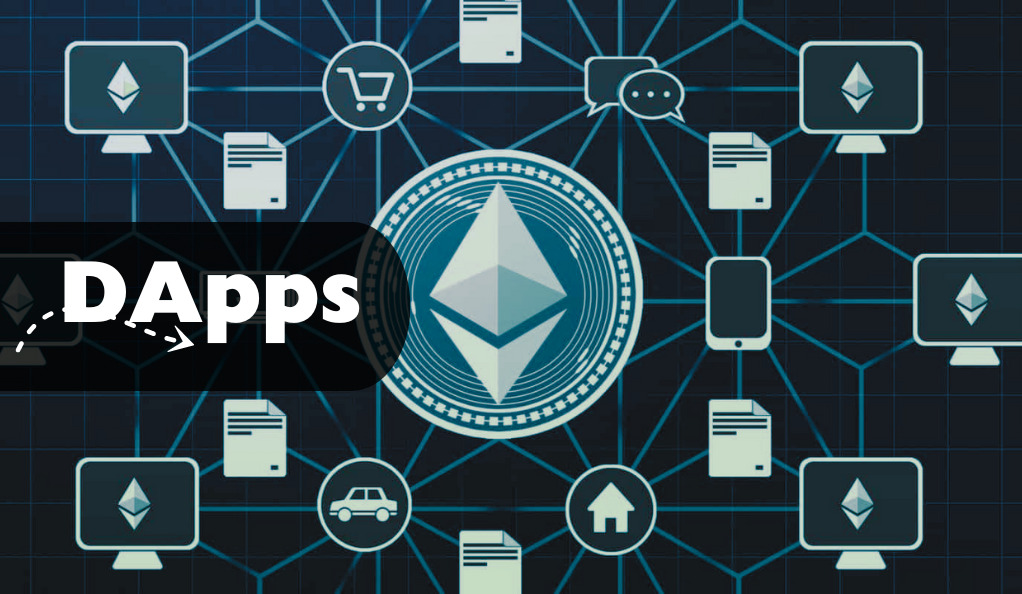Cryptocurrency is much more than a form of digital money. It’s a potent blend of several innovative technologies that have the potential to reshape numerous aspects of our lives. The backbone of this ecosystem is blockchain technology, but it also includes other vital components like smart contracts and decentralized applications (DApps). These elements work together to enhance how we conduct transactions, manage digital assets, and interact with the online world.
Indeed, cryptocurrency is not just about finance. It represents a broader shift towards decentralization and autonomy in the digital realm. The technologies that underpin it could fundamentally transform industries such as real estate, law, supply chain management, and many others. They offer possibilities for increased transparency, reduced reliance on intermediaries, and enhanced security.
Blockchain: The Backbone of Cryptocurrency

Blockchain is the bedrock upon which all cryptocurrencies are built. It is a decentralized ledger system that documents every transaction across a network of computers. This decentralization makes it nearly impossible to alter any single record, thereby ensuring the integrity of the data and minimizing the risk of fraud.
The true strength of blockchain lies in its transparency and immutability. Every transaction made is visible to everyone within the network, fostering an environment of trust and accountability. This transparency isn’t limited to merely tracking financial transactions; it extends to monitoring the movement of digital assets, verifying identities, and confirming actions.
Moreover, the unchangeable nature of blockchain records implies that once a transaction is documented, it can’t be modified. This feature not only deters fraudulent activities but also simplifies record-keeping processes and boosts efficiency.
Beyond its integral role in cryptocurrency, blockchain technology has broad implications that reach far beyond. It holds the potential to revolutionize sectors like supply chain management, healthcare, and finance by offering a secure, transparent method to track transactions and assets. For instance, within the supply chain industry, blockchain could enable real-time, verifiable tracking of goods from production to delivery.
Smart Contracts: Automating Trust
Smart contracts are another critical component of the cryptocurrency ecosystem. These are self-executing contracts with the terms of an agreement embedded directly into lines of code. Stored on the blockchain, smart contracts are transparent, traceable, and irreversible.
Smart contracts allow transactions to be automated and executed without needing a middleman. This automation reduces costs, enhances efficiency, and eliminates possibilities for human error or manipulation. For example, a smart contract could automatically transfer ownership of a property once payment is confirmed, effectively removing the need for lawyers or real estate agents.
Additionally, smart contracts pave the way for creating intricate programmable transactions. These can include conditions, triggers, and operations that extend beyond simple asset transfers. This capacity opens up a world of possibilities for automating business processes and pioneering new types of digital interactions.
The potential of smart contracts to disrupt industries like insurance, law, and finance is enormous. They can automate complex processes and enforce contractual commitments without human intervention. In the realm of insurance, for instance, smart contracts could automatically disburse claims when specific conditions are met, such as a flight delay or a natural disaster.
DApps: The Future of Applications

Decentralized Applications, or DApps, are a new breed of applications that operate on a peer-to-peer network instead of a centralized server. They harness the power of blockchain and smart contracts to function transparently and without a central governing body.
DApps hold the potential to democratize digital platforms by giving users control over their data. Unlike traditional apps, where user data is often controlled by a single entity, DApps grant users ownership and control over their data. This shift could revolutionize how we engage with digital platforms, from social media to e-commerce.
Furthermore, DApps can incentivize user participation through token rewards. This strategy fosters a more engaged and active user base and can also serve as a novel business model for digital platforms. For example, a DApp could reward users for contributing content or for curating and moderating the platform.
DApps are already in use in areas like content creation, social media, and online marketplaces. With their potential to disrupt traditional digital platforms and return power to the users, DApps signify a significant shift in how we develop and use applications.
Conclusion
Cryptocurrency, blockchain, smart contracts, and DApps are not just buzzwords; they represent an ongoing digital revolution. While cryptocurrency is the most well-known application of these technologies, their potential extends far beyond digital currency. From automating legal processes with smart contracts to democratizing digital platforms with DApps, these technologies are poised to disrupt many industries and alter the way we do business.
As we continue to explore and leverage the power of these technologies, one thing becomes clear: the future of digital transactions and applications is decentralized. And this is just the beginning. The exciting part is yet to come as we uncover new ways to apply these technologies and redefine our digital world.
FAQs
Blockchain is a decentralized ledger system that records every transaction across a network of computers, making it nearly impossible to alter any single record. It ensures the integrity of the data and prevents fraud.
Smart contracts are self-executing contracts with the terms of the agreement directly written into code. They are stored on the blockchain, making them transparent, traceable, and irreversible. Transactions can be automated and executed without the need for a middleman.
Smart contracts reduce costs, increase efficiency, and eliminate the potential for human error or manipulation. They could automate complex processes and enforce contractual obligations without human intervention.
Decentralized Applications, or DApps, are applications that run on a peer-to-peer network, rather than on a centralized server. They leverage the power of blockchain and smart contracts to operate transparently and without a central authority.
DApps have the potential to democratize digital platforms by giving users control over their data. Unlike traditional apps, where user data is often controlled by a single entity, DApps allow users to own and control their data. This could transform the way we interact with digital platforms, from social media to online shopping.
Bitcoinnewsmagazine is committed to providing impartial and reliable insights into cryptocurrency, finance, trading, and stocks. It's important to note that we do not provide financial advice, and we strongly encourage users to conduct their own research and due diligence.
Read More
